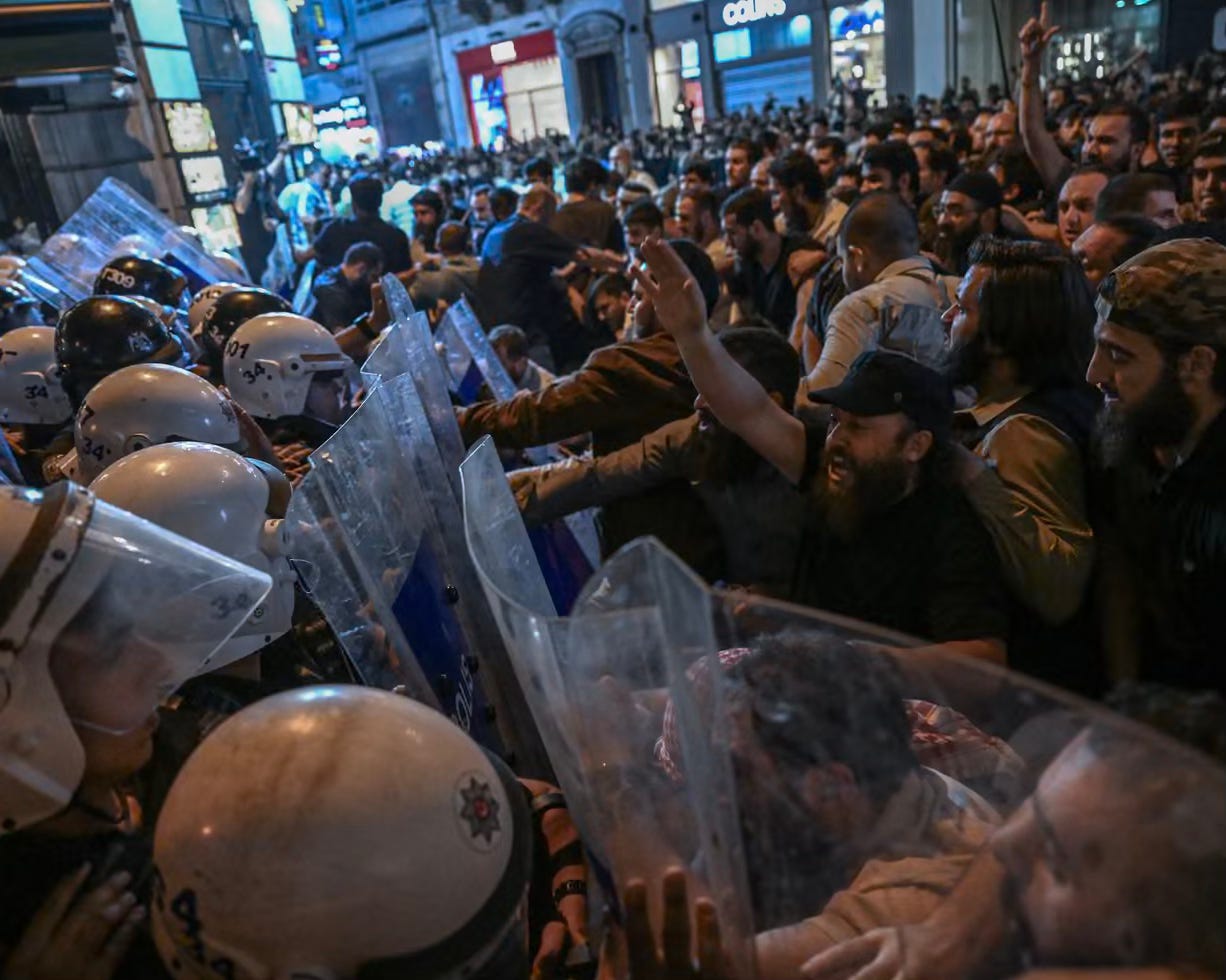A Comic Magazine Raided in Istanbul, Israel’s Fury Unleashed at Glastonbury
Two issues this week: a comic magazine targeted over a cartoon in Istanbul, and Israel’s fury unleashed on pro-Palestine artists at Glastonbury.
On Monday night, Istanbul was visited by a spectre it has never fully exorcised. A crowd, some bearing the black banners of IBDA-C, an outlawed Islamist group—assembled outside the offices of Leman, one of Turkey’s oldest comic weeklies. Their fury targeted a cartoon in this week’s issue that said to mock the Prophet Muhammad. What might have remained a fleeting editorial controversy was quickly transfigured into a theatre of ideological intimidation. The choreography was familiar, echoing both the Charlie Hebdo attacks and Turkey’s own long history of religious vigilantism. .
Founded in the late 1970s by Salih Mirzabeyoğlu, IBDA-C (the Great Eastern Islamic Raiders’ Front) emerged from a volatile fusion of messianic Islamism and Turkish ultranationalism, heavily influenced by the theocratic vision of Necip Fazıl Kısakürek one of the doctrinal architects of Islamist thought in mid-20th centur…



